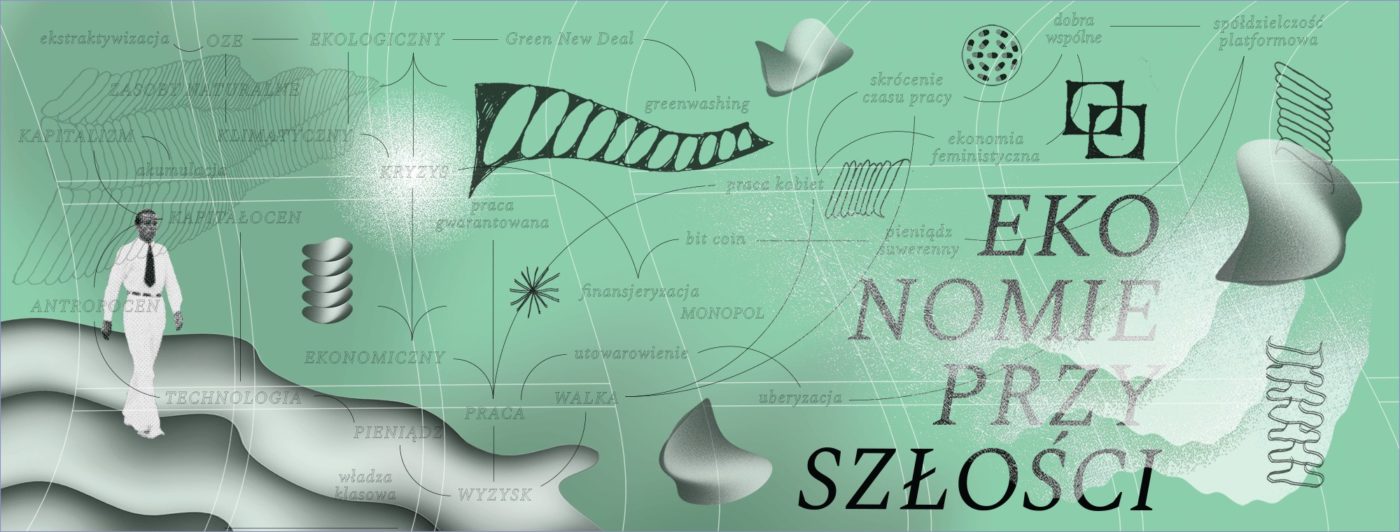Registration for the series “Economics of the future”
curator: Przemysław Wielgosz

We would like to invite you to participate in the “Economics of the future” series of seminars – ten lecture-workshop meetings conducted by leading economists representing various currents of heterodox economics. The series is a part of an interdisciplinary project which apart from seminars comprises debates, publications, films and radio broadcasts. It will aim at be expanding the area of the economic debate in Poland to include previously ignored or marginalised topics. This inclusion will make the debate capable of opening up to the challenges of the future.
For a long time we have watched as the reality has evaded the framework of conventional economics. Phenomena such as the climate crisis, exhausting the possibility of externalising the costs of economic growth to the environment, near end of the pay race to the bottom, robotisation and the boom of new technologies challenge many of incontrovertible truths on which economic debates and policies are still based. But the longer we ignore them, the higher the price we will have to pay for their increasing impact on our lives. This is why we should decide to take on the double risk. First, we should make the effort to develop a new approach in economics. An approach that will revolutionise not only theory but, above all, practice, reclaiming its forgotten meaning – which should consist not of the capital gain, but collective fulfilment of needs. Secondly, we must go beyond the economic and expert niche. The stake is democratisation and overcoming depoliticisation which for years, under the banner of neoliberalism, has been disarming all critical thinking and taking away the voice from citizens of formally democratic societies in essential matters shaping their everyday existence.
The “Economics of the Future” project stems precisely from this diagnosis and it will attempt to realize both strategies outlined above. Our objective will be not only pointing out topics and concepts which economics should consider but, above all, reclaiming economic imagination, intellectual courage and the political potential of change necessary to redesign economic relationships, so that they become a field of social agency, negotiation and democratic innovation.
| Data | Czas | Tytuł | Miejsce | Wstęp |
|---|---|---|---|---|
|
January 7 2020
, 14:00
Tuesday
—
January 23 2020
Thursday
|
14:00 |
Registration for the series “Economics of the future”Registration open until 22 January
|
Registration is closed |

